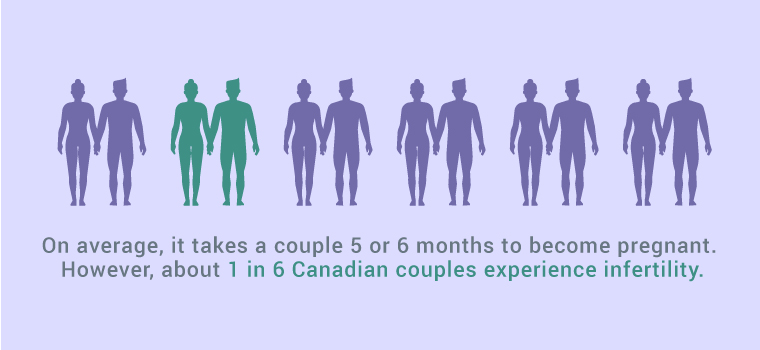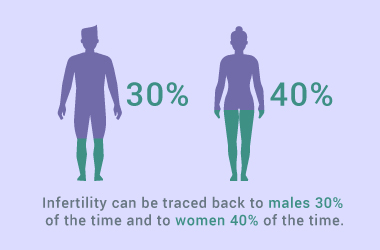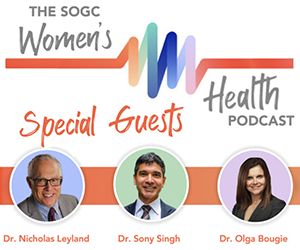Fertility
If you feel like your understanding of your cycle and how conception happens is a bit shaky, start with this primer on human reproduction. It will give you the background information you need to understand your own fertility.
Many factors affect a person’s fertility. These include age, lifestyle, genetics, weight, stress, anatomical variations, and sexually transmitted infections. Making an effort to be as healthy as possible prior to trying to conceive can increase your chances of getting pregnant. Maintaining a healthy weight is a very important aspect of being healthy. Sometimes pregnancy will happen in the first month of unprotected sex. More often than not, getting pregnant will take some patience. On average, it takes a couple 5 or 6 months to become pregnant. However, about 1 in 6 Canadian couples experience infertility.

Infertility is generally defined as a lack of conception after a year of unprotected sex for women under 35. This timeframe is shortened to 6 months for women over 35. Infertility can be traced back to males 30% of the time and to women 40% of the time. The remaining 30% is caused either by a mix of factors from the man and woman, or is not known.  New technologies in assisted reproduction mean that many people are able to have children who would otherwise not have the possibility.
New technologies in assisted reproduction mean that many people are able to have children who would otherwise not have the possibility.


